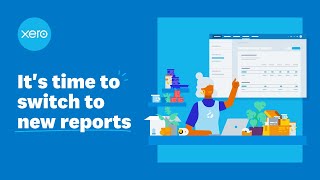Developing your forecasts
Are you getting your small business forecasting right?
Forecasting is an essential part of running a business. Getting your forecasts right can be the difference between success and struggle but it can feel overwhelming; where do you even start?
This guide will help you to understand what forecasts are and how to prepare your finances so your forecasts are as accurate as possible.
This guide will teach you:
- What forecasting is
- The foundations of good forecasting
- The difference between profit and cash flow
- Tips to maintaining accurate forecasting
What is forecasting?
In business, forecasting is:
- Making predictions about the future based on past and present data, plus trend analysis
Forecasting allows you to accurately make decisions about future budgeting.
Without forecasting, it is impossible to make sound decisions relating to the future of your business. Forecasting predicts possible highs or lows in demand and allows you to act accordingly.
Take note: Forecasting should not be confused with foresight. Foresight is exploring a range of future possibilities. It does not rely on the same rigorous data analysis as forecasting.
HOW TO PREPARE FOR FORECASTING FOR SMALL BUSINESS
Establish the foundations
You must understand the financials of your business to be able to forecast accurately.
That means paying attention to your:
- Profit & Loss Statement, asking:
- Can you easily and clearly see core revenue streams?
- Can you easily and clearly identify Gross Profit for each revenue stream?
- Balance Sheet; can you answer the following question for EVERY line on your balance sheet?
- What is it / what does it mean?
- Does it feel right?
- Can you prove it?
- Cash Statement
- Your cash statement reflects your profit statement and balance sheet. Simpler is better
- Try to be clear on operating (trading) and non operating (non trading) cashflow
Forecasting for small business is as much about looking back as looking forward. Understanding the finances of your business is essential. Working with a reliable and proactive accountant will help you to understand how your past finances have functioned and how they will affect the future.
Take note: Imagine Accounting recommends you practice what’s known as ‘accrual accounting’, which gives you more accurate results. Talk to our team to find out more.
Understand profit vs cash flow
Profit and cash flow are different. Confusing the two will make forecasting for small business difficult.
- Cash flow: Money going in and coming out of the bank over a period of time
- Profit: What is left over from your trading income after all expenses have been subtracted. Profit is based on accruals, not cash. It includes money owed from debtors.
The goal of forecasting is to maximise profit. Trying to forecast based on cash flow alone will not give a true representation of your business’s profitability.
Define your strategic objectives
Forecasting must have a purpose. Take the time to figure out where your business is going and to understand your business goals before you sit down with your accountant to get an idea of what’s around the corner.
Some questions to ask include:
- What are your strategic objectives for the next 12 months?
- Growth/ marketing/ acquisition/ consolidation/ retention/ clients/ products/ locations/ staff/ technology?
- How do these translate into your finances:
- Revenue targets – e.g. 100 clients @ $10k = $1m
- Profit margins – e.g. 30%
- Net profit – e.g. $200k
- Expenses – e.g. Marketing budget $100k
- Cash flow – e.g. pay off ATO debt
Imagine you had to leave the business for a year. Your goals explain where you would want it to be when you came back.
As you define your strategic objectives, you need to keep your operational objectives in mind as well.
Examine your key operational objectives for the next 12 months and consider:
- Key projects
- Team members
- Software/ technology
- Systems/ processes
- Premises
Before you forecast
It is important to make sure you review your finances in depth regularly and consistently.
Here are a couple of scenarios that will make forecasting difficult:
1.Reviewing only the basics:
- The Situation
- Decent amount of money coming into your bank account each month
- A fair amount going out
- Some left at the end of the month
- Not sure of financials off the top of your head outside of this
- What does this mean?
-
- Your financial responses are reactive
- There is no real understanding of the financial numbers
- The rug could be pulled out at any time – consider the impact of lockdowns, etc
- Any impact to finances noticed is often too late
2.Inconsistent reviews:
- The Situation
- You go over the numbers with your accountant or coach once a month/quarter/year
- You are disconnected from the day-to-day of the business
- There is a lack of understanding of the numbers in terms of how it impacts the day-to-day
- You fail to translate your conversations into sustainable/practical approach
- What does this mean?
- You have a passive approach to financial numbers
- You hope that the input, activity and day-to-day efforts will carry you through
- There is a lack of practical oversight over the financial health of the business during the month/year
Reviewing only the basics and not reviewing consistently is doing only half the job.
Prepare for forecasting by keeping your books in order
Forecasting for small business requires backtracking and you need to have easy access to your numbers.
Here is another example of tracking which will make forecasting tricky for you and your accountant:
- The Situation
- You use spreadsheets to track your finances
- This requires manual work to complete
- Financial management often gets put to the side in favour of other jobs
- Numbers are tracked but not analysed
- Financial tracking is dependent on a key person in the business
- What does this mean?
- You lack simplicity in your accounts
- You’re unable to get the insights you need
- You engage in spot checks instead of creating a proactive approach that covers all bases
Beware the gap
As you prepare for forecasting, look out for the gap between your finances and the rest of the business.
For example, revenue might be increasing in line with extra demand, so you hire more people to service the need. If this affects your cash flow or profit you must be aware of it. You may be paying more for new staff than you are bringing in.
Create your scoreboard/dashboard
Your financial scoreboard or dashboard is a simple and efficient way to keep track of your business’s financial movements.
Your scoreboard, though, is not about analysing numbers. It is for focusing on a quick snapshot of the financial health of your business. Simplicity is key, focus only on the numbers that are critical for your business’ longevity.
Consider using a traffic light system or something similar. This will tell you at a glance whether everything is on track, needs attention, or is going wrong.
Having immediate insight like this is invaluable. It helps keep things on track and lets you measure your progress against your previous forecast.
A quality accountant can help you to set up a dashboard that will keep track of the data that is most important for your business.
Use an accountant
If you have taken the right steps to organise your finances, your small business forecasting should be an easier process. You can review your previous year’s progress, look at your plans for the future and combine the two to make predictions about business performance.
However, it is still confusing to know which numbers to reference and what potential they have to change.
An accountant can get your forecasts functioning so they are realistic and any targets you set are achievable.
Once you are happy with your forecasting, keep an eye on your numbers to see how well your business is tracking.
Stay proactive and work closely with your accountant. Use their expertise and your forecasting will be a helpful way to stay in control financially.
Speak with an accountant to help you perfect your forecasts. Contact Imagine Accounting on 02 9884 7100




